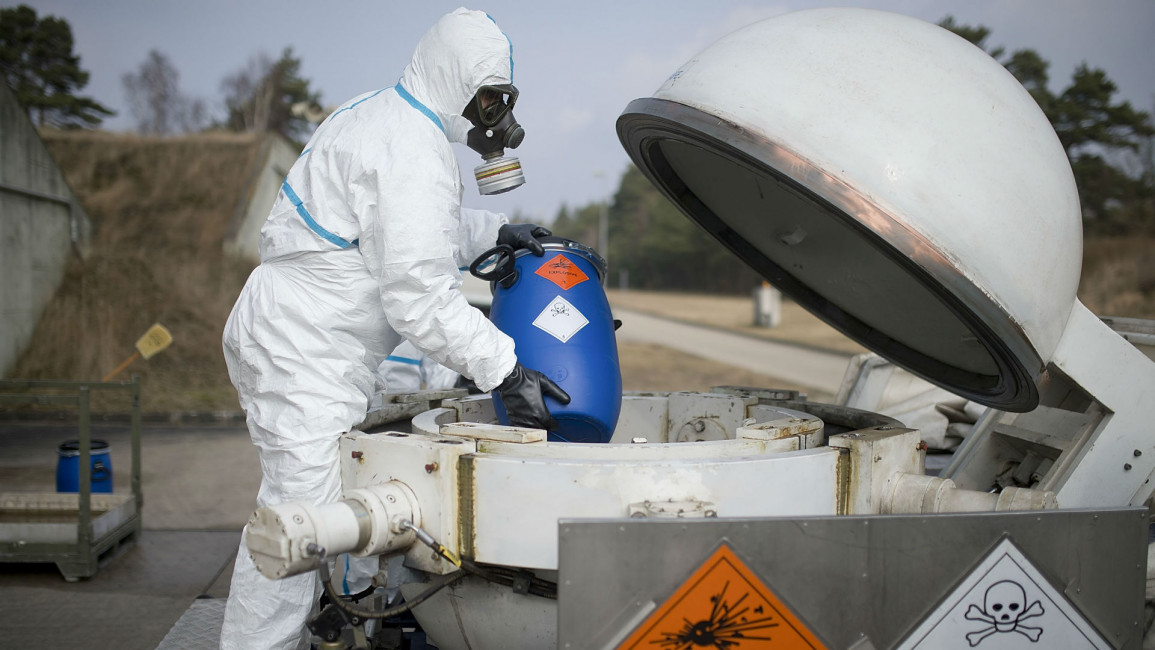Syrian expert behind Assad regime's chemical weapons programme 'was on CIA payroll for years'
A leading figure in Syria's chemical weapons programme was on the CIA payroll for 14 years, before his eventual arrest in 2001, a new book has revealed.
Ayman, known by his CIA handlers as "The Chemist", oversaw the production of the regime's huge chemical arsenal and was the mastermind of several of its deadly breakthroughs, including the development of sarin.
He began passing information of the regime's chemical weapons programme on to the CIA from 1988, until he eventually confessed to Syrian intelligence his ruse, resulting in his execution in 2001.
Despite the events taking place two decades ago, the story was only just revealed via Red Line, a book by Joby Warrick with excepts recently published by The Washington Post.
It gave the Americans information on the size of the regime's lethal nerve agents, the locations of the chemical arsenals, and the latest developments in the secret scheme.
Ayman, whose full name was not revealed in the book to protect the identity of his family in Syria, was one of the leading lights in the regime's research on deadly nerve agents, which was situated in the hills above Damascus.
|
|
After reaching out to American intelligence during an overseas conference, he was finally approached by an agent in Damascus.
Over the next 14 years, he leaked to his CIA handlers highly-sensitive information about his work at a secret research centre, named Institute 3000.
This included the development of sarin and a nerve agent called VX which was even deadlier, capable of killing with even the briefest exposure to the toxin.
During his years at Institute 3000 he was behind several breakthroughs in chemical weapons engineering, including a way of ensuring sarin would lose none of its potency when fired at targets via missiles - a development which worried the US.
The leaks to the Americans were only revealed when Syrian intelligence called in Ayman for questioning, regarding reports they had on his illegal activities.
When given the chance to confess, he revealed his dealings with the CIA but was then told the information intelligence had on him was regarding corrupt activities and not espionage.
He was detained and eventually executed, shot rather than hanged - the procedure customary for most Syrians condemned to death - befitting his high-profile in the regime.
The Syrian regime has alluded to its chemical weapons programme in the past and finally handed over some of its arsenals for destruction after the US threatened military action over the 2013 chemical massacre in opposition Eastern Ghouta.
The Syrian regime has carried out countless gas attacks since then, including the use of sarin again on the Idlib village of Khan Sheikhoun in 2017.
Follow us on Facebook, Twitter and Instagram to stay connected
 |



